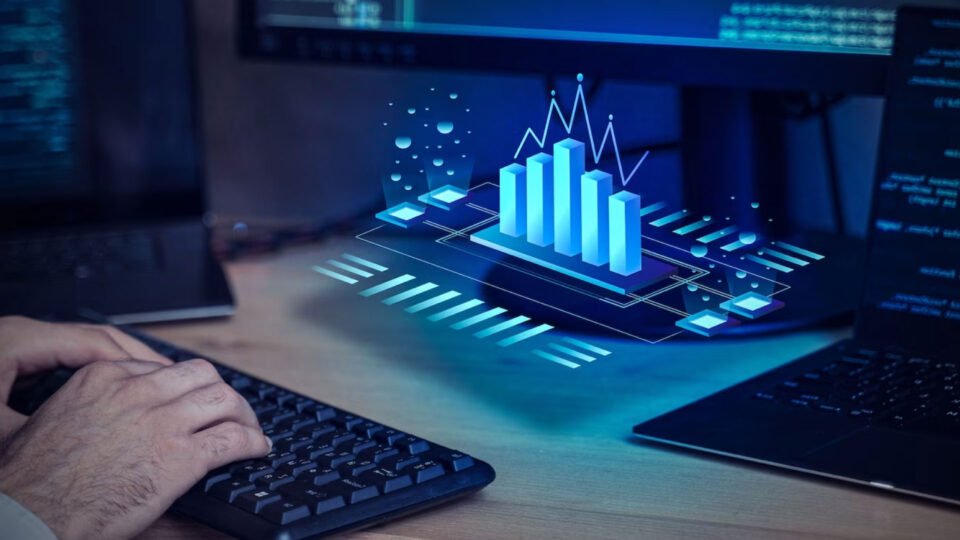Discover the top 4 2024 data trends that will keep you ahead of the dynamic digital landscape.
Table of Contents
Introduction
1. The Era of the Data Renaissance
2. Top 4 Data Trends of 2024
2.1. Data Democratization
2.2. Data Unification
2.3. Data-as-a-Service
2.4. Data Governance
Growing Emphasis on Data
Introduction
2023 was a terrific year in the IT industry, but 2024 is set to bring some exciting and groundbreaking developments that will help IT professionals and data scientists develop innovative software and tools to strive in the competitive landscape.
The most recent technological advancement in the data landscape is quite commendable. In 2024, IT enterprises will be heavily impacted, as data is the new oil that can transform any business and reshape the traditional process of analyzing, visualizing, and making data-driven decisions.
As IT enterprises grapple with the data deluge, they often find themselves at an intersection of technological innovation, ethical considerations, and the need for actionable solutions.
In today’s exclusive AI Tech Park article, we will focus on gearing up IT professionals and data scientists to understand the data trends they can expect in 2024.
1. The Era of the Data Renaissance
The phrase “data is the new oil” was stated in 2006 by British data scientist Clive Humby. The one big difference between data and oil is that oil is a nonrenewable energy, and data can be renewed and reused in an infinite number of ways.
Three decades ago, one of the main challenges that IT enterprises faced was the scarcity of data. However, with time, the main challenge for most IT businesses was having a plethora of data.
With such a volume of data, enterprises struggle with how to use the data, where to implement it, when they need it, and most importantly, how to store it. The traditional database management systems (DMS) failed to tackle the new data sets, which made data professionals realize the importance of cloud storage, which is efficient in handling numerous types of data and quite cost-efficient compared to DMS.
As we stand at the crossroads of a data renaissance, the year 2024 heralds an important role in the data analytic landscape, where data analytics is no longer a tool for data-driven decision-making but a driving force to push greater efficiency, innovation, real-time data insights, responsible AI, reinforce security, and more.
However, IT professionals and data scientists need to address the challenges and considerations of imposing data privacy, skill development, and ethical dilemmas to stay compliant with this evolving regulatory landscape.
2. Top 4 Data Trends of 2024
The groundbreaking IT trends and the introduction of generative AI (GenAI) have redefined IT professionals’ and data scientists’ interactions with the new data, which drives sustainable growth and allows IT businesses to stay ahead of the competition. These five most trending data trends of 2024 will change the IT landscape in the coming years:
2.1. Data Democratization
Data democratization has been a growing trend for the past few years, but the increased usage of AI and machine learning (ML) tools has rekindled a new horizon for this trend. With data democratization, every employee in an IT organization will have access to the data to make data-driven decisions for a seamless business process. However, to get full access to data, IT leaders need to provide in-house training on data literacy to familiarize them with the principles and techniques of working with data.
2.2. Data Unification
It is often observed that teams don’t communicate with each other while working on multiple data sets, which causes data loss. Therefore, to fix this issue, IT enterprises can implement a data unification strategy that combines data from numerous sources into a consistent and trustworthy format. In 2024, data unification will be mostly used in automated solutions, such as cloud computing or software development, helping companies eliminate the risk of data theft.
2.3. Data-as-a-Service
Data-as-a-service (DaaS) comes in for those IT businesses looking to store and analyze their data in a cloud-based management model. The DaaS model is used to collect, store, and analyze data provided on a subscription basis, where users can access a wide range of unstructured to structured data without physically storing it. DaaS providers such as Snowflake and Databrick are well-known for their data warehousing solutions. DaaS ensures good-quality data while keeping security and privacy standards in mind, making it a cost-effective approach for startups and small businesses.
2.4. Data Governance
Organizations employing GenAI need to comprehend the ethical use of data; for that, they need to stay accountable for transparency, data collection, and data usage. With the rising concern over data breaches and leaks, CIOs and data leaders need to be accountable for reposing AI. They must focus on developing robust regulatory frameworks and industry-wide standards to resolve the ethical challenges.
To learn more about data governance, read: The Value of the Chief Data Officer in the Data Governance Framework
Growing Emphasis on Data
With the growing popularity of data analytics, IT professionals and data professionals are on their toes to understand the data journey. Organizations are willing to embrace this digital transformation with the integration of AI, natural language processing (NLP), augmented analytics, and edge computing, as it offers better opportunities and data-driven outcomes.
However, the organization must keep data security and privacy measures in mind while dealing with generative AI and acquire the right talent to thrive in this dynamic landscape.
Explore AITechPark for top AI, IoT, Cybersecurity advancements, And amplify your reach through guest posts and link collaboration.

